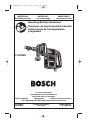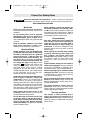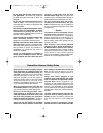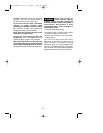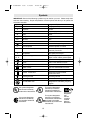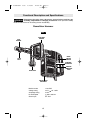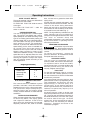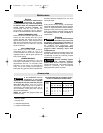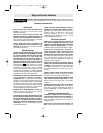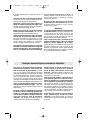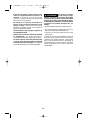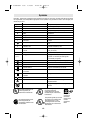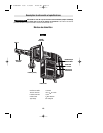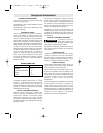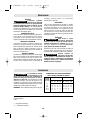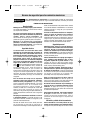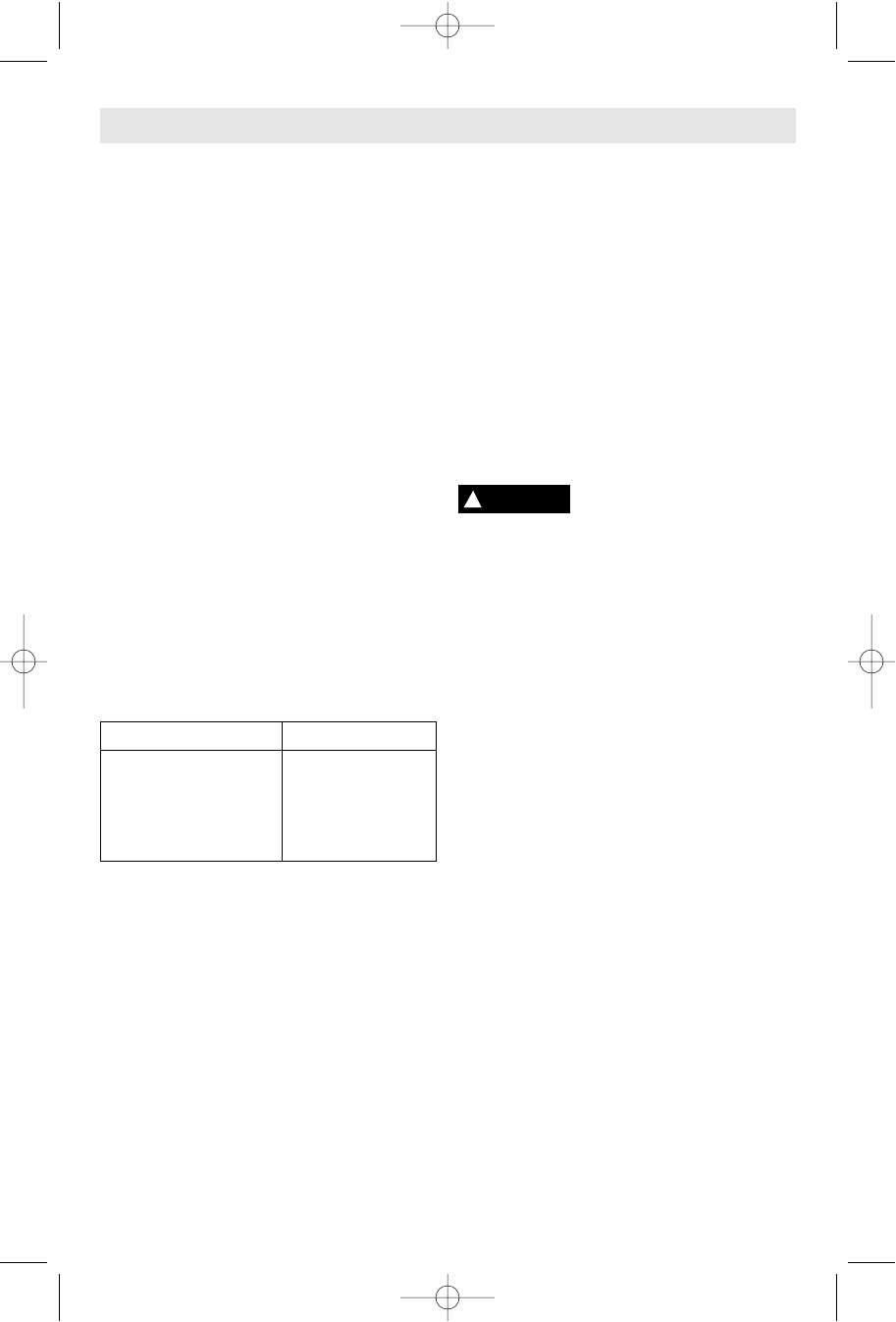
SLIDE "ON-OFF" SWITCH
The tool is switched "ON" by the slide switch
9 located in the rear handle.
TO TURN THE TOOL "ON" slide the switch
to the right.
TO TURN THE TOOL"OFF " slide the
switch to the left.
VARIABLE SPEED DIAL
Your tool is equipped with a variable speed
dial. The impact rate (BPM) and rotating
speed (RPM) can be varied according to the
type of work being performed by setting the
variable speed dial to the selected setting.
The chart below will help you to determine
which setting to use for your application.
However, a pre-test will determine the best
speed setting, as the chart is intended only
as a guide. Once the proper setting is
determined the impact rate and rotating
speed is kept constant by means of the
"Electronic Feedback Circuitry". The variable
speed dial can be adjusted while the motor
is running with the tool free from work,
allowing the operator to adjust the impact
rate and rotating speed according to the
actual application.
ELECTRONIC FEEDBACK CIRCUITRY
(EFC)
The internal electronic feedback system
provides a "soft start", which will reduce the
stresses that occur from a high torque start.
The system also helps to keep the pre-
selected impact rate and rotating speed
virtually constant between no-load and load
conditions.
INSTALLING ACCESSORIES
Clean the insert shank end of the accessory
to remove any debris, then lightly grease
with a light oil or lubricant. If work is to be
done where the accessories are changed
frequently and laid in dirt, sand or concrete
dust, it is best not to grease the shank after
wiping clean.
Pull the lock bolt outward and rotate it 180˚.
Insert hex shank into the tool holder, with the
recess on the shank facing downward.
Return the lock bolt to the original position.
Pull outward on the accessory to be certain
it is locked into the tool holder (Fig. 1).
NOTE: The high efficiency available from the
rotary hammers can only be obtained if
sharp and undamaged accessories are used.
The "cost" to maintain sharp and
undamaged accessories is more than offset
by the "time saved" in operating the tool
with sharp accessories.
REMOVING ACCESSORIES
Accessories may be hot after
use. Avoid contact with skin
and use proper protective gloves or cloth to
remove.
To remove an accessory, reverse the
previous directions. All accessories should
be wiped clean after removing.
AUXILIARY HANDLE
The tool must be supported with the
auxiliary handle, which can be swiveled 360˚.
To reposition and/or swivel the handle,
loosen the hand grip, move the handle to the
desired position along the barrel and
securely retighten the hand grip.
"TOOL TIPS"
For the best penetration rates in concrete,
run the tool with a steady pressure, but do
not use excessive force as this will decrease
the efficiency of the tool.
All grease packed hammers require a short
period of time to warm up. Depending on the
room temperature, this time may vary from
approximately 15 seconds (90˚F) to 2
minutes (32˚F). A new hammer requires a
break-in period before full performance is
realized. This period may require up to 5
hours of operation.
An electric hammer is likely to be the most
expensive portable tool at the construction
job. The long wear and efficient operation of
the BOSCH hammers will more than justify
the cost for tools of this type. As earlier
pointed out, sharp accessories as well as
clean air vents are necessary for efficient
operation. Establish and follow a set
maintenance program.
-7-
Operating Instructions
Chipping (Demolition)
Area of application Control setting
Plaster work 1 - 2
Removing tiles 3
Brick work 4
Concrete 5 - 6
!
WARNING
BM 1619929511 3/03 3/10/03 12:09 PM Page 7



